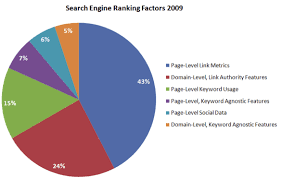Unlocking the Potential of Shopify SEO: Elevate Your Online Store’s Visibility
The Power of Shopify SEO
In the realm of e-commerce, having a robust online presence is paramount for success. With millions of online stores vying for attention, standing out from the crowd is no easy feat. This is where Search Engine Optimization (SEO) plays a pivotal role, and when coupled with the popular e-commerce platform Shopify, the results can be truly transformative.
Shopify SEO involves optimising your online store to improve its visibility on search engines like Google. By implementing strategic SEO practices tailored to the Shopify platform, you can enhance your store’s rankings, drive organic traffic, and ultimately boost sales.
Key Benefits of Shopify SEO:
- Improved Search Rankings: By optimising your Shopify store for relevant keywords and search terms, you can climb higher in search engine results pages (SERPs), making it easier for potential customers to find you.
- Enhanced User Experience: SEO best practices such as mobile responsiveness, fast loading times, and intuitive navigation not only please search engines but also provide a seamless shopping experience for visitors.
- Increased Organic Traffic: With higher search rankings comes increased visibility. By attracting more organic traffic to your Shopify store, you have a greater chance of converting visitors into customers.
- Better Conversion Rates: Targeted SEO strategies can attract qualified leads who are actively searching for products like yours. This increases the likelihood of conversions and boosts your store’s revenue.
How to Optimise Your Shopify Store for SEO:
To leverage the full potential of Shopify SEO, consider implementing the following tactics:
- Keyword Research: Identify relevant keywords that align with your products and target audience. Incorporate these keywords naturally into your product descriptions, meta tags, and URLs.
- Optimise Product Pages: Create unique product descriptions, titles, and alt text for images. Ensure that each product page is well-organised and easy to navigate.
- Social Media Integration: Share your products on social media platforms to drive traffic back to your store. Social signals can positively impact your SEO rankings.
- Blogging and Content Marketing: Publish high-quality content related to your products or industry. Blog posts can attract organic traffic and establish your store as an authority in its niche.
- Monitor Performance: Use analytics tools to track key metrics such as traffic sources, conversion rates, and keyword rankings. Continuously refine your SEO strategy based on data-driven insights.
In conclusion, harnessing the power of Shopify SEO can propel your online store to new heights of success. By investing time and resources into optimising your store for search engines, you can attract more customers, increase sales, and establish a strong digital presence in the competitive world of e-commerce.
Essential FAQs About Shopify SEO: Costs, Strategies, and Effectiveness
- How much does SEO cost in Shopify?
- How do I maximize SEO on Shopify?
- How much does Shopify SEO cost?
- Are Shopify SEO apps worth it?
- How important is SEO for my Shopify store?
- How do I set up SEO in Shopify?
- Is SEO worth it on Shopify?
- What is the best way to SEO a Shopify website?
- Why Shopify is best for SEO?
- Do Shopify tags improve SEO?
- Is Shopify good SEO?
- Are Shopify tags good for SEO?
- How do I start SEO on Shopify?
- How do I create a SEO for Shopify?
- How do I make my Shopify website SEO?
- How much does Shopify charge for SEO?
- What are the best Shopify SEO strategies?
- Is Shopify blog SEO friendly?
- Is SEO better on WordPress or Shopify?
- What does Shopify SEO mean?
- Can you do SEO with Shopify?
- What is Shopify SEO service?
- What is the best SEO app for Shopify?
- Do tags on Shopify help with SEO?
- How much is SEO on Shopify?
- Is Shopify SEO free?
- Is Shopify good for SEO?
How much does SEO cost in Shopify?
When considering the cost of SEO for Shopify, it’s essential to understand that pricing can vary depending on several factors. The cost of SEO services for a Shopify store is influenced by the scope of work required, the competitiveness of your industry, and the level of expertise offered by the SEO provider. Generally, SEO services for Shopify can range from a few hundred to several thousand pounds per month. It’s crucial to invest in high-quality SEO services that align with your business goals and deliver tangible results in terms of improved search rankings, increased organic traffic, and higher conversions. Conducting thorough research and seeking quotes from reputable SEO agencies can help you determine a budget that suits your needs while maximising the return on investment for your Shopify store.
How do I maximize SEO on Shopify?
To maximise SEO on Shopify, it is essential to implement a comprehensive strategy that encompasses various key elements. Begin by conducting thorough keyword research to identify relevant terms for your products and target audience. Optimise your product pages with unique descriptions, titles, and meta tags that incorporate these keywords effectively. Ensure your Shopify store is mobile-friendly, fast-loading, and easy to navigate for a seamless user experience. Utilise Shopify’s built-in SEO features such as customisable URLs and alt text for images. Regularly update your content, engage in link building activities, and monitor your site’s performance using analytics tools to make data-driven improvements. By adopting a holistic approach to SEO on Shopify, you can enhance your online visibility, attract more organic traffic, and ultimately drive conversions for your e-commerce business.
How much does Shopify SEO cost?
When it comes to the frequently asked question of how much Shopify SEO costs, the answer can vary depending on several factors. The cost of Shopify SEO services is influenced by the scope of work required, the competitiveness of your industry, and the expertise of the SEO professionals you engage. Some businesses may opt for DIY SEO strategies, which can be cost-effective but require time and knowledge investment. On the other hand, hiring professional SEO agencies or consultants may incur higher costs but often yields more comprehensive and effective results. It’s essential to consider your budget, business goals, and long-term benefits when determining the cost of Shopify SEO that aligns best with your needs.
Are Shopify SEO apps worth it?
When considering the question of whether Shopify SEO apps are worth it, the answer lies in understanding the specific needs and goals of your online store. While Shopify itself offers built-in SEO features, SEO apps can provide additional functionalities and customisation options to further enhance your store’s search engine visibility. These apps often offer advanced tools for keyword research, on-page optimisation, link building, and performance tracking. For store owners looking to take their SEO efforts to the next level and maximise their online presence, investing in reputable Shopify SEO apps can be a worthwhile decision. However, it is essential to research and choose an app that aligns with your SEO strategy and budget to ensure a positive return on investment in terms of improved rankings and increased organic traffic.
How important is SEO for my Shopify store?
Optimising your Shopify store for search engines is crucial for its success in the competitive online landscape. SEO plays a pivotal role in enhancing the visibility of your store on search engine results pages, making it easier for potential customers to discover your products and services. By implementing effective SEO strategies tailored to Shopify, you can improve your store’s search rankings, drive organic traffic, and ultimately increase sales. Investing in SEO for your Shopify store is not just important—it is essential for maximising your online presence and reaching a wider audience of potential customers.
How do I set up SEO in Shopify?
Setting up SEO in Shopify is a crucial step towards enhancing your online store’s visibility and attracting organic traffic. To begin, navigate to your Shopify admin dashboard and access the ‘Online Store’ section. From there, select ‘Preferences’ and locate the ‘Search engine listing preview’ option. Here, you can customise essential elements such as your store’s title, meta description, and URL structure to align with relevant keywords and accurately reflect your brand. Additionally, ensure that each product page includes unique titles, descriptions, and alt text for images to optimise for search engines. By diligently configuring these SEO settings within Shopify, you can lay a solid foundation for improving your store’s search rankings and driving more qualified traffic to your online storefront.
Is SEO worth it on Shopify?
The question of whether SEO is worth it on Shopify is a common one among e-commerce store owners. The answer is a resounding yes. Implementing effective SEO strategies on your Shopify store can yield significant benefits in terms of increased visibility, organic traffic, and ultimately, sales. By optimising your site for search engines, you enhance its chances of being discovered by potential customers actively searching for products like yours. Investing in SEO on Shopify is not just worthwhile; it is essential for staying competitive in the digital marketplace and maximising the growth potential of your online business.
What is the best way to SEO a Shopify website?
When it comes to optimising SEO for a Shopify website, the best approach involves a combination of strategic tactics tailored to the platform’s capabilities. Key steps include conducting thorough keyword research to identify relevant terms, optimising product pages with unique descriptions and titles, ensuring fast loading times and mobile responsiveness for enhanced user experience, integrating social media platforms to drive traffic, and regularly monitoring performance metrics to refine and improve the SEO strategy. By implementing these best practices consistently and staying abreast of SEO trends, Shopify website owners can maximise their online visibility, attract more organic traffic, and ultimately boost their store’s search engine rankings.
Why Shopify is best for SEO?
When exploring the realm of e-commerce SEO, the question often arises: Why is Shopify considered the optimal platform for Search Engine Optimization (SEO)? Shopify’s supremacy in SEO stems from its user-friendly interface, robust technical infrastructure, and built-in features that streamline the optimization process. With Shopify, merchants can effortlessly customise meta tags, URLs, and alt text for images, essential elements for SEO success. Moreover, Shopify’s responsive design ensures mobile-friendliness—a crucial factor in search engine rankings. The platform’s seamless integration with apps and plugins further enhances its SEO capabilities, empowering businesses to enhance their online visibility and attract organic traffic effectively.
Do Shopify tags improve SEO?
The question of whether Shopify tags improve SEO is a common query among e-commerce store owners. In the context of Shopify SEO, tags can indeed play a beneficial role in enhancing search engine optimisation efforts. By strategically utilising tags within Shopify, such as product tags and meta tags, businesses can effectively categorise and describe their products for both customers and search engines. Properly optimised tags can improve the organisation and visibility of products on the website, making it easier for search engines to index and rank them accordingly. Therefore, incorporating relevant and descriptive tags in Shopify can contribute to better SEO performance by helping potential customers discover products more easily and improving overall site visibility in search results.
Is Shopify good SEO?
The question “Is Shopify good for SEO?” is a common query among e-commerce entrepreneurs seeking to enhance their online visibility. Shopify, as a leading e-commerce platform, offers robust SEO capabilities that can significantly benefit online stores. With features like customizable meta tags, mobile responsiveness, and user-friendly URLs, Shopify provides a solid foundation for implementing effective SEO strategies. Additionally, Shopify’s intuitive interface and built-in SEO tools make it easier for store owners to optimise their websites for search engines. By leveraging Shopify’s SEO-friendly features and best practices, businesses can improve their search rankings, drive organic traffic, and ultimately boost their online presence and sales performance.
Are Shopify tags good for SEO?
When it comes to Shopify SEO, the question of whether Shopify tags are beneficial for search engine optimisation often arises. Shopify tags can indeed play a role in enhancing SEO efforts. By utilising tags effectively on your Shopify store, you can categorise and organise your products in a way that makes them more discoverable to both users and search engines. Tags help create a hierarchical structure within your store, making it easier for visitors to navigate and find relevant products. Additionally, when appropriately optimised with relevant keywords, Shopify tags can contribute to improved search engine rankings by providing additional context and relevance to your product pages. In essence, leveraging Shopify tags as part of your SEO strategy can help enhance the visibility and accessibility of your online store to potential customers.
How do I start SEO on Shopify?
Embarking on SEO for your Shopify store can be a transformative journey towards enhancing its online visibility and driving organic traffic. To kickstart your SEO efforts on Shopify, begin by conducting comprehensive keyword research to identify relevant search terms for your products or services. Optimise your product pages by incorporating these keywords into titles, descriptions, and meta tags. Ensure your website is mobile-friendly, fast-loading, and user-friendly to provide a seamless browsing experience. Utilise Shopify’s built-in SEO features such as customisable URLs and meta descriptions to further optimise your site for search engines. Regularly monitor your store’s performance using analytics tools to track progress and make informed adjustments to your SEO strategy. By following these steps diligently, you can lay a strong foundation for effective SEO on Shopify and propel your online store towards greater success.
How do I create a SEO for Shopify?
Creating SEO for Shopify involves a strategic approach to optimising your online store for search engines. To begin, conduct thorough keyword research to identify relevant terms that align with your products and target audience. Utilise these keywords thoughtfully throughout your website, including in product descriptions, meta tags, and URLs. Ensure that your Shopify store is well-organised and user-friendly, with clear navigation and fast loading times. Additionally, focus on creating high-quality content that resonates with your audience and integrates targeted keywords naturally. By implementing these SEO best practices tailored to Shopify, you can enhance your store’s visibility, attract organic traffic, and improve search engine rankings effectively.
How do I make my Shopify website SEO?
To enhance the search engine optimisation (SEO) of your Shopify website, there are several key steps you can take. Begin by conducting thorough keyword research to identify relevant terms and phrases that your target audience is likely to search for. Incorporate these keywords strategically into your website content, including product descriptions, meta tags, headings, and URLs. Optimize your website’s loading speed, mobile responsiveness, and overall user experience to improve its SEO performance. Additionally, regularly update your site with fresh content through blogs or product updates to keep it engaging and relevant to both users and search engines. By implementing these SEO best practices on your Shopify website, you can increase its visibility in search results and attract more organic traffic to drive business growth.
How much does Shopify charge for SEO?
When it comes to Shopify SEO, the platform itself does not charge a specific fee for SEO services. Instead, the cost of implementing SEO on Shopify largely depends on the approach you choose to take. You can opt to handle SEO tasks yourself, which would involve investing time and effort into learning best practices and implementing them on your Shopify store. Alternatively, you may choose to hire an external SEO agency or freelancer to manage your SEO strategy, in which case costs can vary based on the scope of work and expertise required. Ultimately, the investment in Shopify SEO is a strategic decision aimed at enhancing your online visibility and driving organic traffic to your store.
What are the best Shopify SEO strategies?
When it comes to enhancing the visibility and performance of your Shopify store, implementing effective SEO strategies is paramount. Some of the best Shopify SEO strategies include conducting thorough keyword research to target relevant terms, optimising product pages with unique descriptions and titles, creating a user-friendly website structure for easy navigation, utilising meta tags and alt text for images, integrating social media platforms for increased visibility, regularly updating content through blogging, and monitoring performance metrics to make data-driven improvements. By incorporating these strategies into your SEO approach, you can improve search rankings, attract organic traffic, and ultimately drive conversions on your Shopify store.
Is Shopify blog SEO friendly?
When it comes to the frequently asked question, “Is Shopify blog SEO friendly?” the answer is a resounding yes. Shopify offers robust features and tools that make it easy to optimise your blog content for search engines. With Shopify’s user-friendly interface, you can customise meta titles, descriptions, and URLs for each blog post, ensuring they are optimised for relevant keywords. Additionally, Shopify automatically generates a sitemap.xml file to help search engines crawl and index your blog content efficiently. By leveraging these SEO-friendly capabilities within Shopify’s blogging platform, you can enhance your blog’s visibility online and attract more organic traffic to your store.
Is SEO better on WordPress or Shopify?
When comparing SEO capabilities between WordPress and Shopify, it’s essential to consider the unique strengths of each platform. WordPress, known for its flexibility and extensive range of SEO plugins, offers users greater control over customisation and content optimisation. On the other hand, Shopify is specifically designed for e-commerce, providing built-in SEO features tailored to online stores, such as product schema markup and mobile responsiveness. Ultimately, the effectiveness of SEO on WordPress or Shopify depends on your specific needs and goals. WordPress may be preferred for content-focused websites seeking maximum customisation, while Shopify excels in providing e-commerce-specific SEO tools for those prioritising online sales performance.
What does Shopify SEO mean?
Shopify SEO refers to the process of optimising a Shopify online store to enhance its visibility and ranking on search engine results pages (SERPs). Essentially, Shopify SEO involves implementing strategies and techniques that make the store more search engine-friendly, thereby increasing its chances of appearing higher in organic search results. By focusing on elements such as keyword optimisation, meta tags, product descriptions, site structure, and user experience, Shopify SEO aims to attract more organic traffic, improve conversions, and ultimately boost the online store’s performance in terms of both visibility and profitability.
Can you do SEO with Shopify?
Certainly, the question “Can you do SEO with Shopify?” is a common query among e-commerce enthusiasts. The answer is a resounding yes. Shopify provides robust tools and features that empower users to implement effective SEO strategies for their online stores. From customising meta tags and URLs to optimising product descriptions and images, Shopify offers a range of functionalities that enable users to enhance their store’s visibility on search engines like Google. By leveraging these SEO capabilities within the Shopify platform, businesses can improve their search rankings, drive organic traffic, and ultimately boost sales, making Shopify a viable choice for those looking to optimise their online presence.
What is Shopify SEO service?
Shopify SEO service refers to the specialised assistance and strategies aimed at optimising the search engine visibility and performance of Shopify online stores. This service encompasses a range of techniques tailored to enhance a store’s rankings on search engine results pages (SERPs) and attract organic traffic. By leveraging Shopify SEO services, store owners can improve their online presence, increase brand visibility, drive relevant traffic to their websites, and ultimately boost sales and conversions. These services typically involve keyword research, on-page optimisation, content creation, link building, and ongoing monitoring and refinement to ensure optimal results in the competitive e-commerce landscape.
What is the best SEO app for Shopify?
When it comes to enhancing the SEO performance of your Shopify store, a frequently asked question is, “What is the best SEO app for Shopify?” The answer to this query may vary depending on specific business needs and goals. However, some popular SEO apps for Shopify that are highly recommended by users and experts include apps like Plug in SEO, SEO Manager, and Smart SEO. These apps offer a range of features such as keyword optimization, meta tag management, sitemap generation, and more to help improve your store’s search engine visibility and drive organic traffic. It’s advisable to explore different options, read reviews, and consider your unique requirements before selecting the best SEO app for your Shopify store.
Do tags on Shopify help with SEO?
When it comes to Shopify SEO, a commonly asked question revolves around the impact of tags on search engine optimisation. Tags on Shopify can indeed play a significant role in enhancing SEO efforts. By assigning relevant tags to products, collections, or blog posts, you provide search engines with additional context about the content on your store. These tags help categorise and organise your content, making it easier for search engines to index and rank your pages appropriately. Furthermore, well-chosen tags can improve the user experience by aiding visitors in navigating your site and finding relevant products or information efficiently. In essence, utilising tags effectively on Shopify can contribute to better SEO performance and ultimately boost your online visibility and traffic.
How much is SEO on Shopify?
When it comes to the cost of SEO on Shopify, the pricing can vary depending on several factors. The investment required for SEO services on Shopify is influenced by the scope of work needed, the competitiveness of your industry, and the specific goals you aim to achieve. Some SEO agencies offer fixed-price packages, while others provide customised solutions tailored to your unique requirements. It is essential to consider that investing in SEO for your Shopify store is a long-term strategy that can yield significant returns by driving organic traffic and boosting conversions over time. Ultimately, the cost of SEO on Shopify should be viewed as an investment in the growth and success of your online business.
Is Shopify SEO free?
When it comes to Shopify SEO, one common query that arises is whether it is free. While Shopify itself provides basic SEO features as part of its platform, such as customizable meta tags and alt text for images, fully optimizing your online store for search engines often requires additional effort and resources. Implementing advanced SEO strategies, conducting keyword research, creating high-quality content, and monitoring performance may necessitate investing in SEO tools or seeking professional assistance. Therefore, while the foundational aspects of Shopify SEO may be included in the platform’s offerings, achieving optimal results typically involves a strategic approach that may incur costs.
Is Shopify good for SEO?
When it comes to the frequently asked question “Is Shopify good for SEO?”, the answer is a resounding yes. Shopify, as a popular e-commerce platform, offers robust built-in SEO features that can significantly enhance the visibility of online stores. From customizable meta tags and URLs to mobile-responsive themes and fast loading times, Shopify provides a solid foundation for implementing effective SEO strategies. Additionally, Shopify’s user-friendly interface makes it easy for store owners to optimise their websites for search engines without requiring advanced technical knowledge. By leveraging Shopify’s SEO capabilities and implementing best practices, businesses can improve their search rankings, attract more organic traffic, and ultimately drive sales growth in the competitive e-commerce landscape.









Leave a Comment